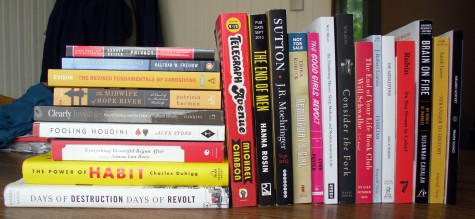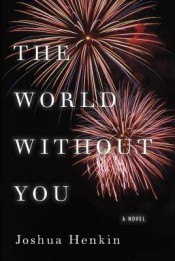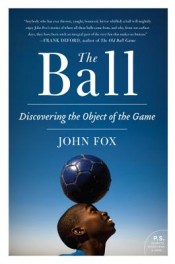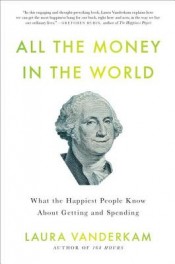Title: The Ball: Discovering the Object of the Game
Author: John Fox
Genre: Narrative nonfiction
Year: 2012
Acquired: From the publisher for review consideration
Rating: 




Review: One of my favorite parts of my trip to Book Expo America this year was getting to wander around the expo floor oogling all sorts of new nonfiction titles with two of my favorite nonfiction book bloggers Marc (Maphead’s Book Blog) and Amy (Amy Reads). What I love about talking nonfiction with Marc and Amy is that we each have very separate and very distinct types of nonfiction that we’re drawn too. Among other topics, Amy loves books about sociology, gender, and identity and Marc is into serious history, politics, and comparative religion. They’re serious nonfiction readers.
I, on the other hand, always feel like a nonfiction lightweight because of the way I’m drawn to quirky cultural histories of everyday objects or investigations into everyday things. Two of the books I’m most excited about from BEA are a book about the history of how we cook and eat and an investigation of the culture of sleep. It was so funny to browse tables at BEA because Marc, Amy, and I could immediately point to books at a given publisher and pick which of us would probably like it best.
Anyway, given that quirky history is basically my bread and butter, I think it’s no surprise that I was totally into The Ball by John Fox. The Ball begins with a question from Fox’s seven-year-old son, one of those deceptively complicated questions that can only lead down a super-awesome rabbit hole of research: Why do we play ball?
To answer the question, Fox digs into the history of many of today’s most popular sports — baseball, tennis, soccer, football, rugby and others — and the plaything they have in common. In his quest, he looks into the evolutionary purpose of play and, more specifically, the evolutionary purpose of playing with a ball, and then goes off to try early inspirations for some of today’s sports.
I don’t think there’s anything entirely distinct about the structure or style of the book — it reads very much like other narrative histories of quirky or common things, with the author including stories about the research and travel that went into writing the book, science that helps explain why people do the things they do, and illustrations from experts met along the way. It’s a pretty traditional way of telling a story like this, but since it’s a storytelling method I love I felt right at home.
In the end, I think the best thing that I can say about The Ball is that it was a totally fun book to read — exactly what you would expect about a book inspired by a game of catch.
Other Reviews:
If you have reviewed this book, please leave a link to the review in the comments and I will add your review to the main post. All I ask is for you to do the same to mine — thanks!








